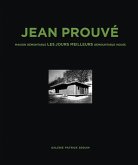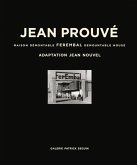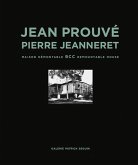"Shows how far ahead of his time Prouvé really was--as early as the 1930s he was designing temporary and modular housing that could be flat-packed, shipped, bolted together on site and inhabited within a matter of hours." -Jack Self, The Architectural Review Though lacking any formal education in architecture, Jean Prouvé (1901-1984) became one of the most influential architects of the twentieth century, boldly experimenting with new building designs, materials and methods. Prouvé was raised in an environment of artistic, socially motivated innovation: his father belonged to "l'École de Nancy," a collective that sought to unite art, industry and social awareness. He continued this practice throughout his adulthood, opening the Ateliers Jean Prouvé to manufacture standardized, economical goods on a mass scale--which, during World War II, included creating portable and demountable barracks. After the war, the French government commissioned Prouvé to design inexpensive, effective housing for the newly homeless, prompting him to perfect his patented axial portal frame to build easily constructed demountable houses. Despite their advantages, though, few of these architectural triumphs were built, and even fewer survive. In order to preserve Prouvé's architectural and engineering legacy, the Galerie Patrick Seguin has worked tirelessly to promote Prouvé's "constructional philosophy," exhibiting his designs and showcasing his ecologically responsible methodologies. Jean Prouvé Maison Démontable 8x8 Demountable House, the second of nine monographs published by the Galerie Patrick Seguin on Prouvé's housing modules, highlights the second of these modules. Introduced by Catherine Coley, renowned art and architectural historian, it contains Prouvé's sketches, black-and-white photographs of the designer at work and detailed examples of the building process.

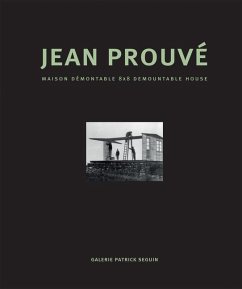
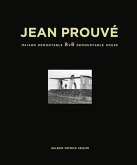
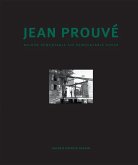
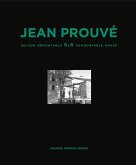
![Jean Prouvé Maison Démontable 6x6 Demountable House: Adaptation Rogers Stirk Harbour]partners, 1944-2015 Jean Prouvé Maison Démontable 6x6 Demountable House: Adaptation Rogers Stirk Harbour]partners, 1944-2015](https://bilder.buecher.de/produkte/45/45344/45344576m.jpg)
